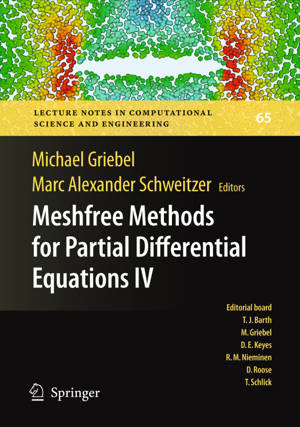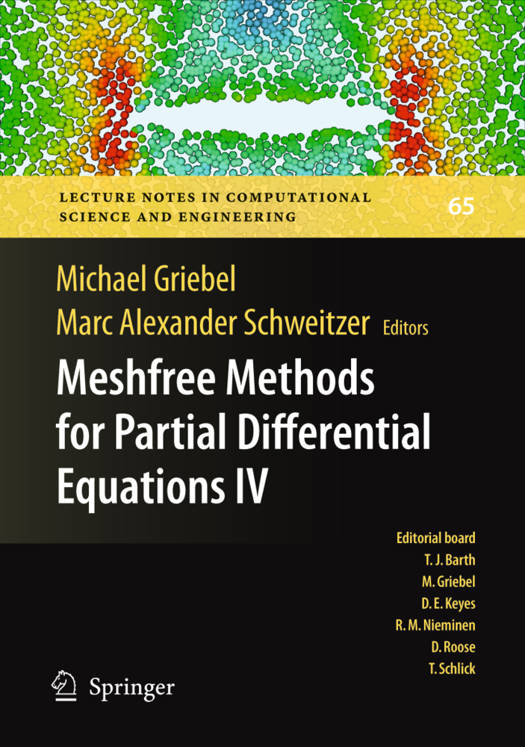
- Afhalen na 1 uur in een winkel met voorraad
- Gratis thuislevering in België vanaf € 30
- Ruim aanbod met 7 miljoen producten
- Afhalen na 1 uur in een winkel met voorraad
- Gratis thuislevering in België vanaf € 30
- Ruim aanbod met 7 miljoen producten
Zoeken
Meshfree Methods for Partial Differential Equations IV
€ 105,45
+ 210 punten
Omschrijving
The Fourth International Workshop on Meshfree Methods for Partial D- ferential Equations was held from September 17 to September 20, 2007 in Bonn, Germany. One of the major goals of this workshop series is to bring together European, American and Asian researchers working in this exciting ?eld of interdisciplinary research on a regular basis. To this end Ivo Babu? ska, Ted Belytschko, Michael Griebel, Antonio Huerta, Wing Kam Liu, and Harry Yserentant invited scientist from twelve countries to Bonn to strengthen the mathematical understanding and analysis of meshfree discretizations but also to promote the exchange of ideas on their implementation and application. The workshop was again hosted by the Institut fur ] Numerische Simu- tionattheRheinischeFriedrich-Wilhelms-Universit] atBonnwiththe?nancial support of the Sonderforschungsbereich 611 Singular Phenomena and Scaling in Mathematical Models. This volume of LNCSE now comprises selected contributions of attendees of the workshop. Their content ranges from applied mathematics to physics and engineering. This is also an indication that meshfree methods for the numerical solution of partial di?erential equations are becoming more and more mainstream in many areas of applications due to their ?exiblity and wide applicability.
Specificaties
Betrokkenen
- Uitgeverij:
Inhoud
- Aantal bladzijden:
- 412
- Taal:
- Engels
- Reeks:
- Reeksnummer:
- nr. 65
Eigenschappen
- Productcode (EAN):
- 9783540799931
- Verschijningsdatum:
- 10/10/2008
- Uitvoering:
- Paperback
- Formaat:
- Trade paperback (VS)
- Afmetingen:
- 155 mm x 234 mm
- Gewicht:
- 589 g

Alleen bij Standaard Boekhandel
+ 210 punten op je klantenkaart van Standaard Boekhandel
Beoordelingen
We publiceren alleen reviews die voldoen aan de voorwaarden voor reviews. Bekijk onze voorwaarden voor reviews.










